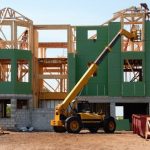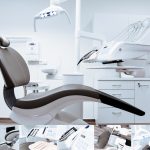
Electricity and HVAC systems are essential for comfort and convenience in our everyday lives. However, safety should always take precedence. Ensuring that your electrical and HVAC systems meet the necessary standards is about complying with regulations and protecting your home and loved ones. Let’s explore some key safety aspects in your electrical and HVAC systems.
Why Prioritize Safety in Your Electrical System?
-
Electricity Is Dangerous: Electricity powers almost everything you use daily, but it can also be the source of major hazards. Faulty wiring, improper installations, or outdated components can lead to fires, electric shocks, or even fatalities. Prioritizing safety ensures that these risks are minimized.
-
Prevention of Fire Hazards: Faulty electrical systems are a leading cause of house fires. Routine checks and adhering to standards can significantly reduce this risk.
-
Protection from Electric Shocks: Ensuring proper insulation and grounding prevents electric shocks.
-
Regulatory Compliance: Meeting local and national electrical safety standards keeps you within the law and ensures the overall safety of your installation.
Key Signs of Electrical System Issues
Identifying issues early on can prevent larger problems. Here are some signs to watch for:
-
Frequent Tripping of Circuit Breakers: This indicates an overloaded circuit or a short in the wiring.
-
Flickering or Dimming Lights: This is often a sign of poor connections or overloaded circuits.
-
Warm or Sparking Outlets: These immediate red flags need professional attention.
-
Burning Smell or Smoke: Unexplained burning odors near electrical outlets can indicate serious problems.
When to Call a Professional?
When dealing with electrical systems, it is always better to call the experts to handle complex issues. Whether you are noticing any of the signs mentioned above or simply want to ensure everything is in good shape, hiring a professional electrician in Denver can provide you with the peace of mind and the safety you need.
HVAC System Safety at Your Fingertips
Your HVAC system plays a vital role in maintaining a comfortable environment in your home. But, like electrical systems, they can pose dangers if not properly maintained. Here’s how you can keep your air moving safely.
The Importance of Regular Maintenance
Routine check-ups can prevent most problems associated with HVAC systems:
-
Efficient Performance: Regular maintenance ensures that your system runs efficiently, helping you save on energy bills.
-
Extended Lifespan: Proper care can extend the life of your HVAC system, avoiding premature replacements.
-
Detection of Harmful Emissions: Professionals can identify risks like carbon monoxide leaks.
Recognizing Symptoms of HVAC Systems Malfunction
Often, your HVAC system will signal that something needs to be corrected. Here are some symptoms:
-
Increased Energy Bills: A sudden spike in your energy bill can indicate that your system is working harder than it should be.
-
Strange Noises: Banging, rattling, or screeching noises require a professional inspection.
-
Inconsistent Temperatures: Hot and cold spots in your home can signal that your HVAC isn’t distributing air properly.
-
Unpleasant Smells: Musty or burning odors should warrant an immediate check.
Getting Expert Help
If your HVAC system shows any signs of trouble, it might be best to seek specialized help. Commercial HVAC services can provide comprehensive checks and repairs to get your system back in shape, ensuring the safety and comfort of your workplace or home.
Simple Tips to Maintain Safety at Home
While professional help is key, there are simple steps you can take to ensure safety:
-
Regularly Inspect Outlets and Cords: Check for signs of wear or damage and replace them as necessary.
-
Install Smoke and CO Detectors: These can provide early warnings in case of fire or harmful gas leaks.
-
Keep Vents Clear: Ensure that your HVAC system does not obstruct airflow.
-
Maintain a Clean Environment Around Units: This will prevent dust buildup and fire hazards.
Importance of Up-to-Date Technology
Updating your systems to the latest technology can be crucial to safety. Modern systems are designed with automatic shut-offs and other safety features that provide added security. If you are considering upgrades, investing in residential HVAC services Denver can ensure you find the best options tailored to meet your needs.
Understanding Electrical and HVAC Standards
Adhering to standards is imperative for ensuring safety. Here’s why:
-
Consistency in Safety Protocols: Standards provide a uniform guideline for what is considered safe.
-
Peace of Mind: Knowing that your systems meet the requirements allows for greater confidence in your installations.
-
Increased Property Value: Homes and businesses with certified systems often have higher market value.
How Standards Affect You
It is essential to stay informed about the standards affecting your systems:
-
Electrical Codes: Understanding National Electrical Code (NEC) standards helps you ensure compliance.
-
HVAC Efficiency Regulations: Familiarity with current efficiency standards can lead to cost savings and environmental benefits.
Final Safety Checks to Keep in Mind
Consider these final checks to ensure your home or business remains safe:
-
Test Your Safety Systems: Regularly test smoke and CO detectors and replace batteries as needed.
-
Schedule Professional Inspections: Having your systems inspected annually can identify risks you may not notice.
-
Stay Educated on New Standards: Keeping up with standards helps you maintain a safe environment today and in the future.
Final Thoughts
Prioritizing safety in your electrical and HVAC systems is one of the best decisions you can make for your family’s well-being. From regular maintenance and professional checks to understanding and updating technology and standards, this effort ensures your environment is safe, comfortable, and compliant.























































